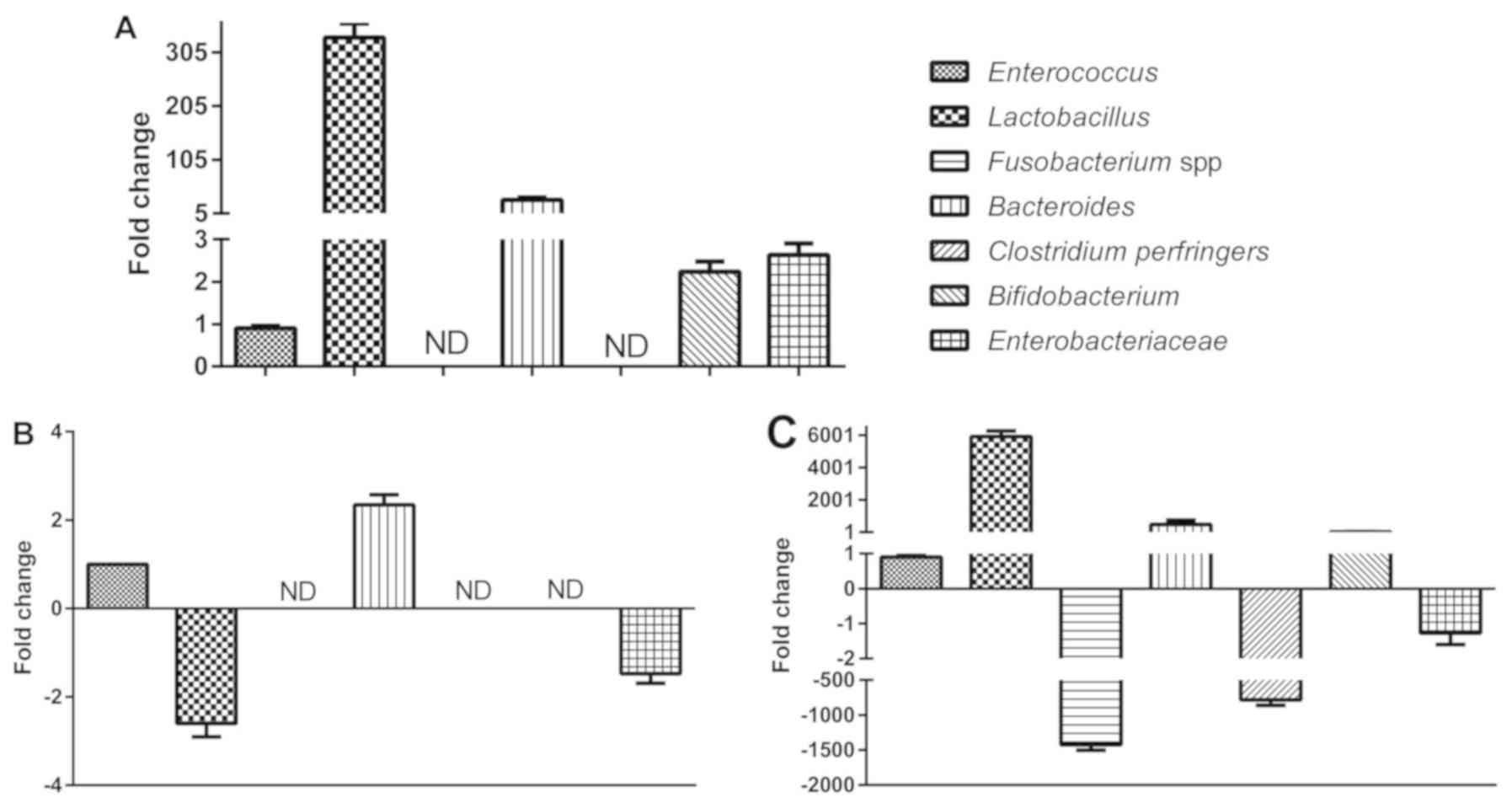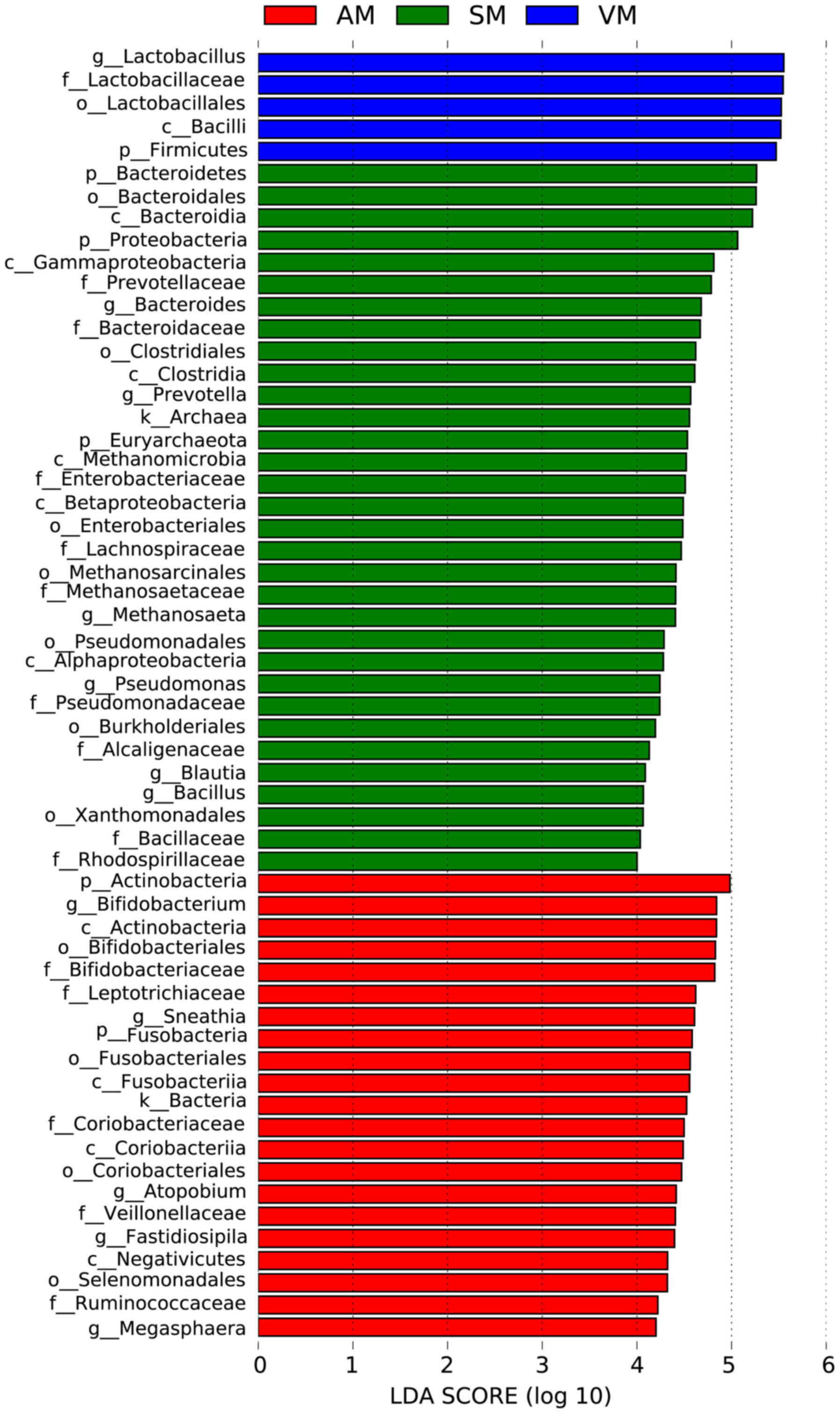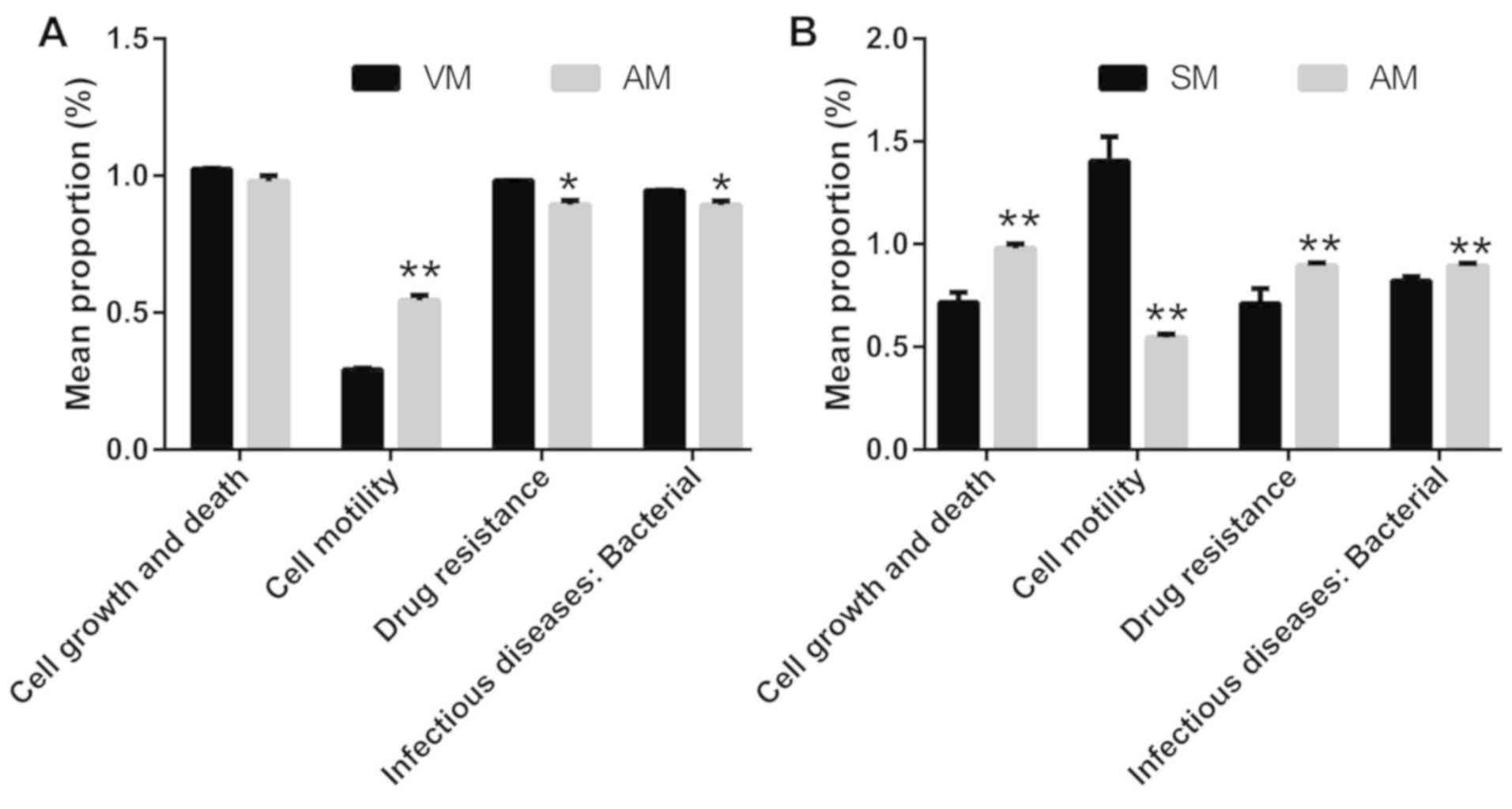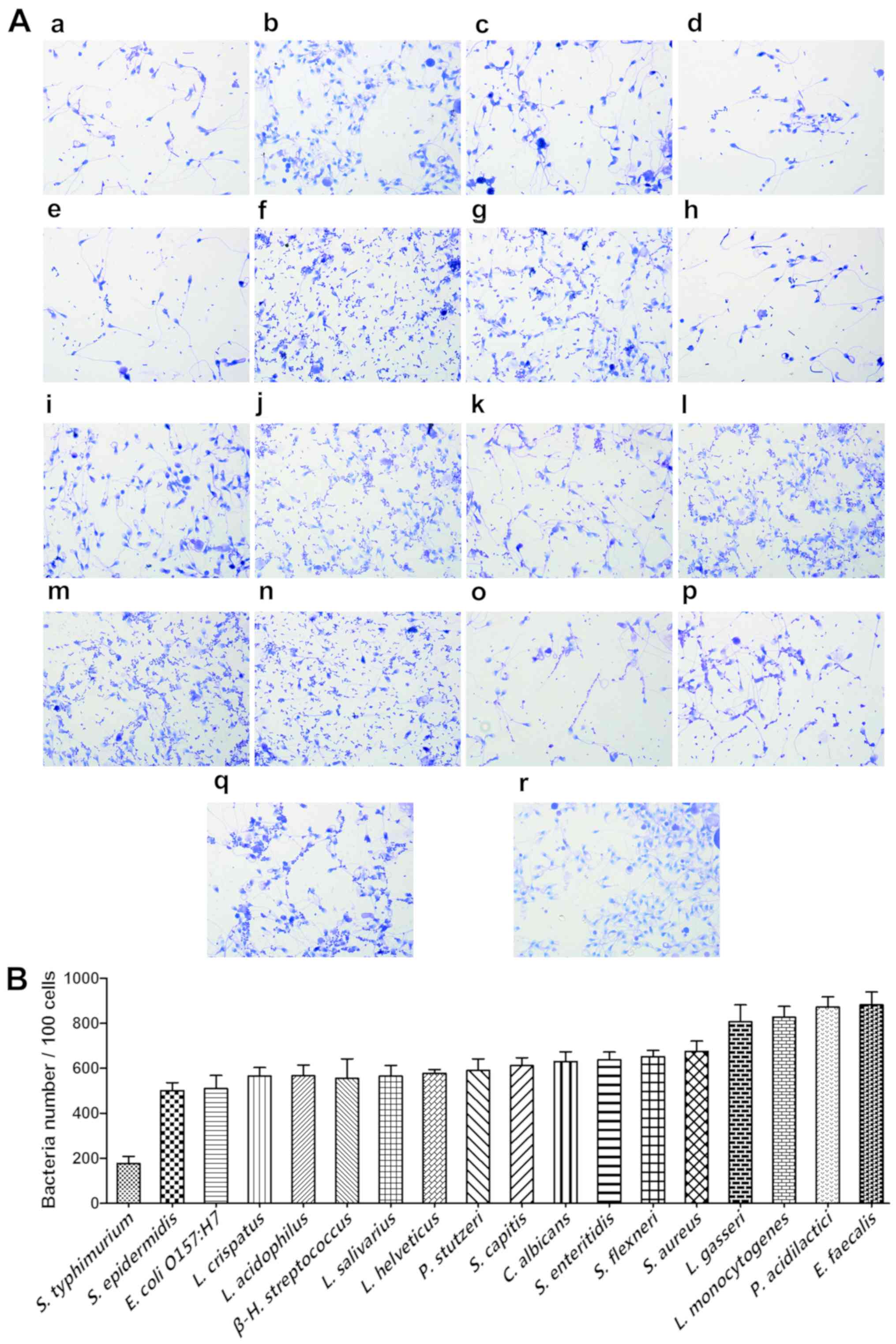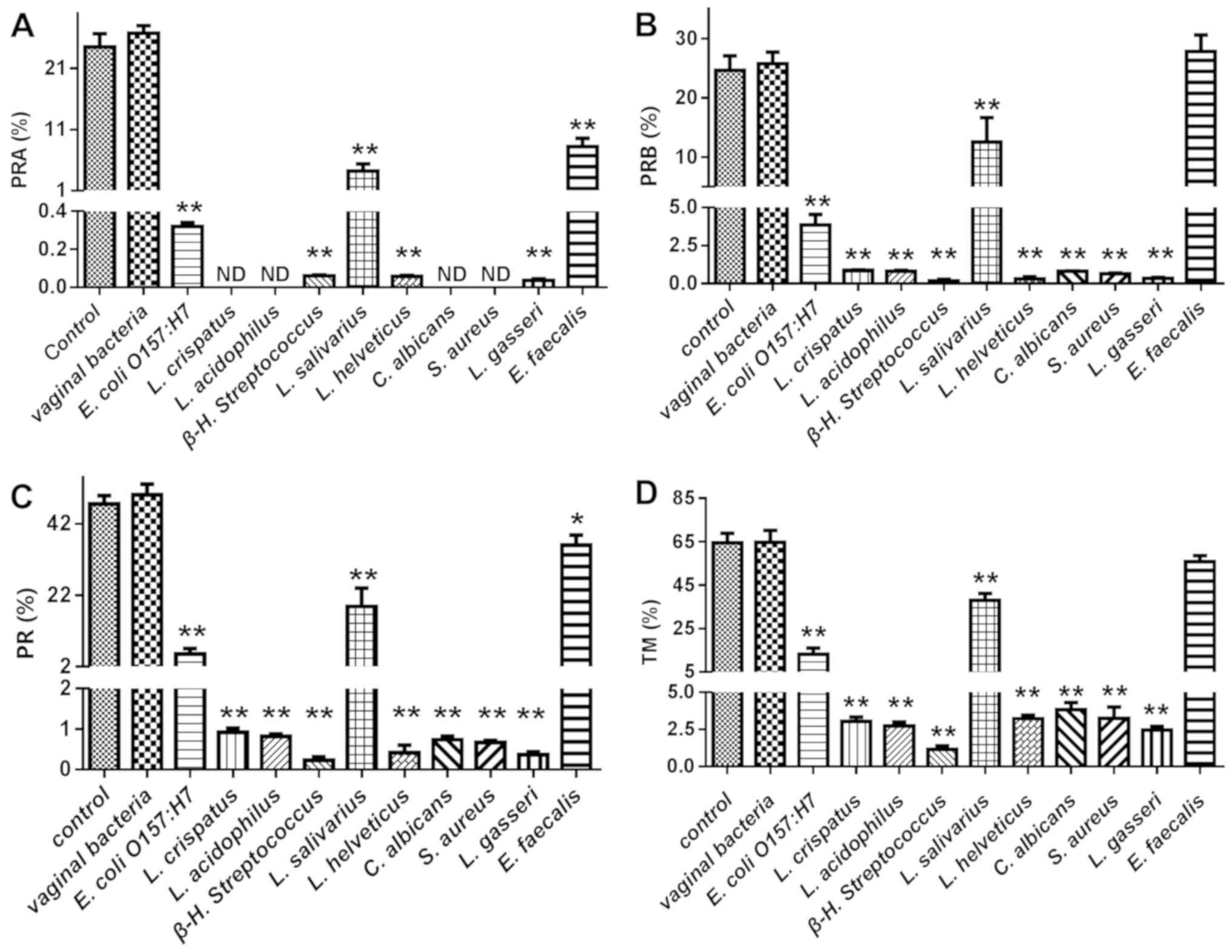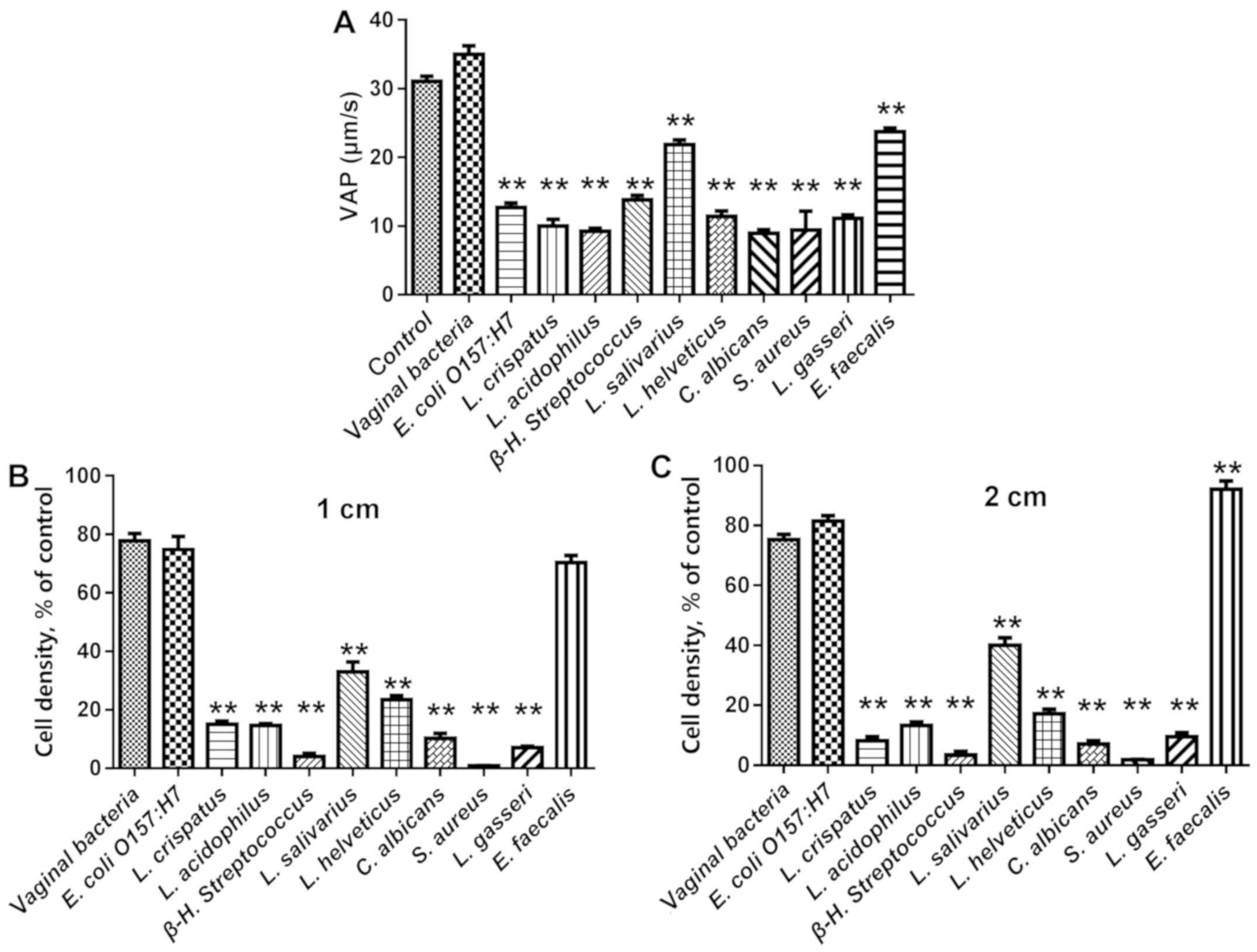|
1
|
Dohle GR: Inflammatory-associated
obstructions of the male reproductive tract. Andrologia.
35:321–324. 2003. View Article : Google Scholar : PubMed/NCBI
|
|
2
|
Jenmalm MC: The mother-offspring dyad:
Microbial transmission, immune interactions and allergy
development. J Intern Med. 282:484–495. 2017. View Article : Google Scholar : PubMed/NCBI
|
|
3
|
Petrova MI, Lievens E, Malik S, Imholz N
and Lebeer S: Lactobacillus species as biomarkers and agents that
can promote various aspects of vaginal health. Front Physiol.
6:812015. View Article : Google Scholar : PubMed/NCBI
|
|
4
|
Ravel J, Gajer P, Abdo Z, Schneider GM,
Koenig SS, McCulle SL, Karlebach S, Gorle R, Russell J, Tacket CO,
et al: Vaginal microbiome of reproductive-age women. Proc Natl Acad
Sci USA. 108 (Suppl 1):S4680–S4687. 2011. View Article : Google Scholar
|
|
5
|
van de Wijgert JH, Borgdorff H, Verhelst
R, Crucitti T, Francis S, Verstraelen H and Jespers V: The vaginal
microbiota: What have we learned after a decade of molecular
characterization? PLoS One. 9:e1059982014. View Article : Google Scholar : PubMed/NCBI
|
|
6
|
Hou D, Zhou X, Zhong X, Settles ML,
Herring J, Wang L, Abdo Z, Forney LJ and Xu C: Microbiota of the
seminal fluid from healthy and infertile men. Fertil Steril.
100:1261–1269. 2013. View Article : Google Scholar : PubMed/NCBI
|
|
7
|
Jones C: Intersex, infertility and the
future: Early diagnoses and the imagined life course. Sociol Health
Illn. 2019. View Article : Google Scholar
|
|
8
|
Jarvi K, Lacroix JM, Jain A, Dumitru I,
Heritz D and Mittelman MW: Polymerase chain reaction-based
detection of bacteria in semen. Fertil Steril. 66:463–467. 1996.
View Article : Google Scholar : PubMed/NCBI
|
|
9
|
Mändar R, Punab M, Borovkova N, Lapp E,
Kiiker R, Korrovits P, Metspalu A, Krjutškov K, Nõlvak H, Preem JK,
et al: Complementary seminovaginal microbiome in couples. Res
Microbiol. 166:440–447. 2015. View Article : Google Scholar : PubMed/NCBI
|
|
10
|
Mändar R, Punab M, Korrovits P, Türk S,
Ausmees K, Lapp E, Preem JK, Oopkaup K, Salumets A and Truu J:
Seminal microbiome in men with and without prostatitis. Int J Urol.
24:211–216. 2017. View Article : Google Scholar : PubMed/NCBI
|
|
11
|
Chen H, Luo T, Chen T and Wang G: Seminal
bacterial composition in patients with obstructive and
non-obstructive azoospermia. Exp Ther Med. 15:2884–2890.
2018.PubMed/NCBI
|
|
12
|
Armanini D, Giorgino FL and Fiore C:
Editorial comment to receptor dependent immobilization of
spermatozoa by sperm immobilization factor isolated from
Escherichia coli: Proof of evidence. Int J Urol. 18:603–604. 2011.
View Article : Google Scholar : PubMed/NCBI
|
|
13
|
Champer M, Wong AM, Champer J, Brito IL,
Messer PW, Hou JY and Wright JD: The role of the vaginal microbiome
in gynaecological cancer: A review. BJOG-Int J Obstet Gy.
125:309–315. 2018. View Article : Google Scholar
|
|
14
|
Meng F, Chen T, Wang X, Wang X, Wei H,
Tian P, Wang H, Zhao X, Shen L and Xin H: Evaluation of the
accuracy and sensitivity of high-throughput sequencing technology
using known microbiota. Mol Med Rep. 17:408–413. 2018.PubMed/NCBI
|
|
15
|
Zhang F, Zhang M, Wang Y, Li C and Chen T:
Comparison of the common bacteria in human and mouse tumours using
high-throughput sequencing. Mol Med Rep. 17:6717–6722.
2018.PubMed/NCBI
|
|
16
|
Drummond A and Rodrigo AG: Reconstructing
genealogies of serial samples under the assumption of a molecular
clock using serial-sample UPGMA. Mol Biol Evol. 17:1807–1815. 2000.
View Article : Google Scholar : PubMed/NCBI
|
|
17
|
Rao X, Huang X, Zhou Z and Lin X: An
improvement of the 2ˆ(-delta delta CT) method for quantitative
real-time polymerase chain reaction data analysis. Biostat
Bioinforma Biomath. 3:71–85. 2013.PubMed/NCBI
|
|
18
|
Luo T, Li N, He YQ, Weng SQ, Wang T, Zou
QX and Zeng XH: Emodin inhibits human sperm functions by reducing
sperm [Ca(2+)]i and tyrosine phosphorylation. Reprod Toxicol.
51:14–21. 2015. View Article : Google Scholar : PubMed/NCBI
|
|
19
|
Ramchander NC and Crosbie EJ: The vaginal
microbiome and gynaecological cancer: Exercise caution when
considering causation. BJOG. 125:2017.PubMed/NCBI
|
|
20
|
Macklaim JM, Cohen CR, Donders G, Gloor
GB, Hill JE, Parham GP, Ravel J, Spear G, van de Wijgert J and Reid
G: Exploring a road map to counter misconceptions about the
cervicovaginal microbiome and disease. Reprod Sci. 19:1154–1162.
2012. View Article : Google Scholar : PubMed/NCBI
|
|
21
|
Verdenelli MC, Coman MM, Cecchini C, Silvi
S, Orpianesi C and Cresci A: Evaluation of antipathogenic activity
and adherence properties of human Lactobacillus strains for vaginal
formulations. J Appl Microbiol. 116:1297–1307. 2014. View Article : Google Scholar : PubMed/NCBI
|
|
22
|
Kyongo JK, Jespers V, Goovaerts O,
Michiels J, Menten J, Fichorova RN, Crucitti T, Vanham G and Ariën
KK: Searching for lower female genital tract soluble and cellular
biomarkers: Defining levels and predictors in a cohort of healthy
Caucasian women. PLoS One. 7:e439512012. View Article : Google Scholar : PubMed/NCBI
|
|
23
|
Harwood VJ, Delahoya NC, Ulrich RM, Kramer
MF, Whitlock JE, Garey JR and Lim DV: Molecular confirmation of
Enterococcus faecalis and E. faecium from clinical, faecal and
environmental sources. Lett Appl Microbiol. 38:476–482. 2004.
View Article : Google Scholar : PubMed/NCBI
|
|
24
|
Eirich J, Orth R and Sieber SA: Unraveling
the protein targets of vancomycin in living S. aureus and E.
faecalis cells. J Am Chem Soc. 133:12144–12153. 2011. View Article : Google Scholar : PubMed/NCBI
|
|
25
|
Creti R, Imperi M, Bertuccini L, Fabretti
F, Orefici G, Di Rosa R and Baldassarri L: A survey for virulence
determinants among E. faecalis isolated from different sources. J
Med Microbiol. 53:13–20. 2004. View Article : Google Scholar : PubMed/NCBI
|
















